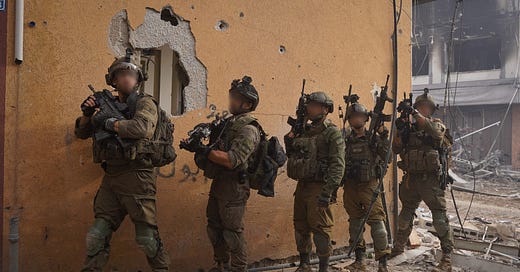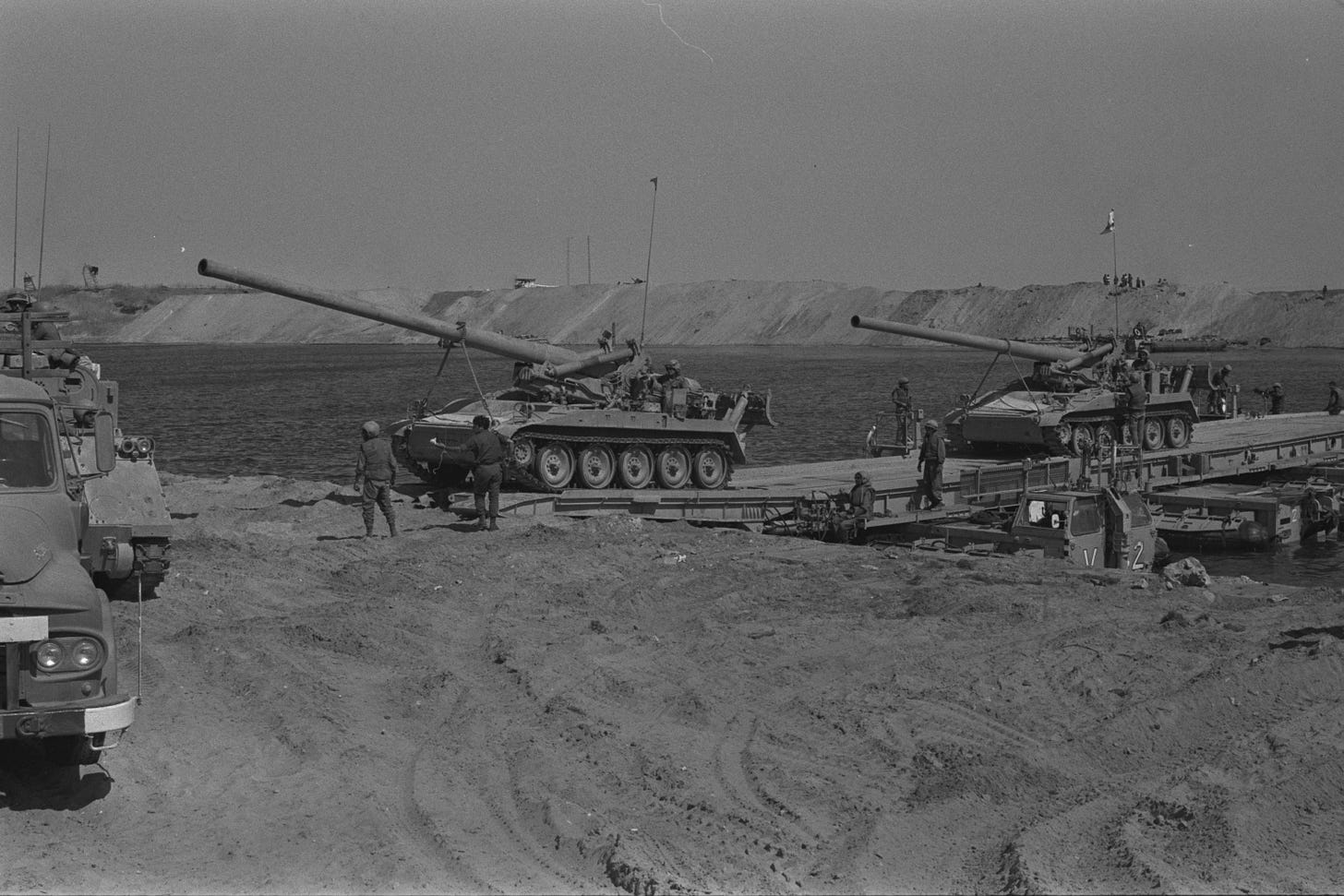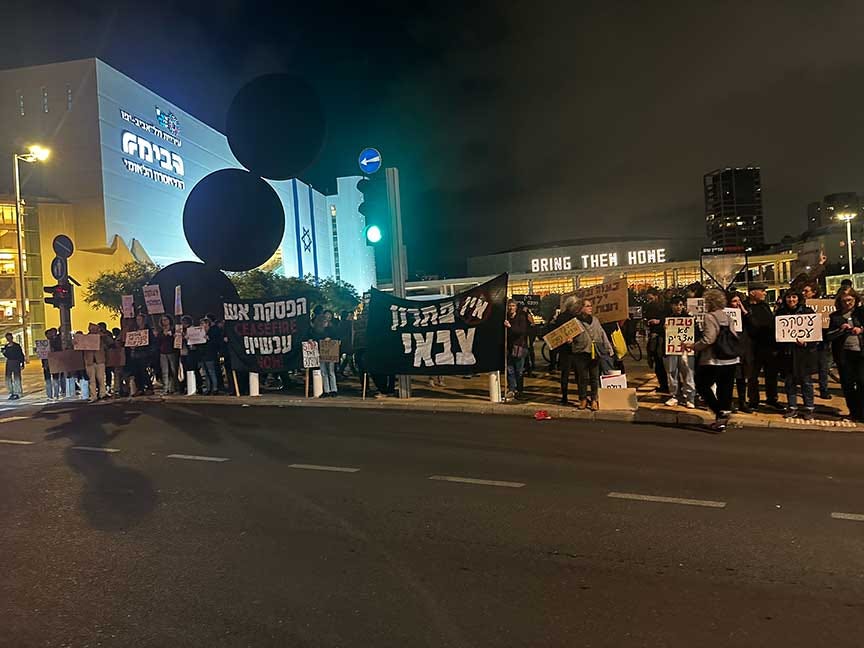Day 90 of the Gaza War: Where We Stand, Can We Win? US Kills Shiite Militia Leader
Tel Aviv Diary, January 5, 2023
REMINDER: Sunday, January 7th @ 6PM Israel Time (11AM East Coast/ 8AM West Coast). 30-minute presentation, followed by 30-minute Q&A
Today marks the 90th day of this unprecedented war; unlike any other in our history. This is only the second conflict whose timing was not initiated by Israel; rather, this war began as an attack on us. While comparisons have been drawn to the Yom Kippur War, the start of this war was far more shocking and unexpected. Suspicions of hostility had been growing days before the Yom Kippur War, with the warning of potential conflict in Egypt by head of Mossad Zvi Zamir, who passed away this week. In contrast, until hours before this war, there was no anticipation of an attack, making the brutal massacre even more surprising.
It will take a long time for Israelis to get over the trauma of October 7th, even for those of us who were not witnesses to the bloodbath. I cannot imagine what it must be like for anyone who survived the brutal massacre. Walking around Tel Aviv these days, it is sometimes hard to know that there is a full scale war taking place just 50 miles to the South, and 140 miles to the North. Only the occasional sounds of a helicopter bringing wounded soldiers to Ichilov Hospital is a shocking reminder.
It’s been a week since the last missile attack on Tel Aviv, and yet as much as life appears to be returning to normal, it is anything but. While there are people in the bars and outdoor cafe of Tel Aviv every night, the crowds are noticeably smaller. Too many of the regular patrons are fighting in Gaza, or manning the Northern border to protect against a ground assault by Hezbollah. Others prepare for a potential ground operation by Israel, if it becomes necessary.
Far too many people know someone killed on October 7th, or taken hostage. Far too many people know a soldier who has fallen since that horrific day. Israel is a much larger country than it was during the Yom Kippur War, when we lost 3,000 soldiers. In 1973, Israel’s population was closer to 3 million. Today, Israel’s population is over 9 million.
The Yom Kippur War nearly caused a national rupture, stemming both from the substantial losses suffered, and the sudden shattering of our perceived sense of invincibility — a sentiment fostered after the 1967 Six Day War, only to be shattered in the crucible of Yom Kippur in 1973. However, it's crucial to note that the Yom Kippur war eventually ended with a resounding Israeli military victory. In 1973, Israel embarked on audacious maneuvers, including Ariel Sharon's crossing of the Suez Canal, which ultimately became a war-winning masterstroke that fractured the resolve of the Egyptians.
Still, it was not until July 1976 that Israeli self confidence returned, when Israel pulled off the miraculous rescue of hostages in Entebbe.
Now, 90 days into the conflict, it's clear that our stated goals remain elusive. What we possess is an exceptionally capable Army at the tactical level, armed with overwhelming firepower and a mastery of combined arms tactics. The IDF’s unstoppable forward momentum has come at a cost in lives lost significantly lower than anyone had anticipated. In discussions with a friend, a former high-ranking intelligence officer, we both had expected that to gain control of Gaza, Israel might endure casualties on the order of 1,000. Despite the significantly lower casualties — or perhaps because of them — it's challenging to discern any audacious military maneuvers employed by the Army.
Most strikingly, the true disappointment stems from the fact that an Army, which once heroically rescued nearly all the hostages from an airport 2,300 miles away, has only managed to bring home one single live hostage in the span of 90 days.
However, Hamas is losing every battle in this war. Israel is systematically eliminating Hamas’s field commanders, and is steadily advancing in the tunnels beneath Gaza — particularly in Khan Younis, where they expect to find many hostages, as well as, the leadership of Hamas. I fear that, in the end, neither of these highly sought targets remain in Khan Younis. It's akin to a game of “Three Card Monte” — meaning, while we are preoccupied searching under Khan Younis, both the hostages, along with the Hamas leadership may have moved to Rafah.
The Israeli government set a lofty goal of “eliminating Hamas as a military or governmental entity.” Moreover, nearly all Israelis supported this objective. However, 90 days into the conflict, more and more people are questioning the feasibility of achieving this goal. A fledgling anti-war movement is emerging, with the slogan “nothing can be solved by war."
I firmly believe that the complete eradication of Hamas is the only solution to ensure our safety. It is vital to unequivocally convey to others that armed conflict against Israel will fail, and will only result in further devastation for the instigators. Our survival in this harsh and unforgiving region of the world hinges on our capacity to uphold a strong and resolute position. I remain hopeful we can accomplish this objective within the limited time frame available for intensive action in Gaza.
SOME news released by the IDF today:
The IDF reported that three of the civilians previously designated as “missing” are now considered hostages— though it appears that one of the three is believed to be deceased.
Furthermore, the Army reported that terrorists from the Nukhba Brigade, which led the attack on October 7th, have been emerging from the tunnels and surrendering. During interrogations, these terrorists have mentioned that a significant number of their comrades have perished in the tunnels, due to new weapons employed by Israel.
IN THE NORTH
Exchanges between Hezbollah and Israel continue along the Lebanese border. However the intensity of the exchanges have been lower today than those launched the day before.
US Kills Shiite Militia Leader
In a separate development, the US launched an attack on the Shiite militia group, Harakat Hezbollah al-Nujaba, closely aligned with Iran and responsible for attacks on US targets in Iraq and Syria. The attack resulted in the death the group's leader, of Mushtaq Talib al-Saidi, and was conducted using a drone. In response, the militia once again targeted US bases tonight.
Meanwhile, the Houthi group attempted to attack another ship today, but failed. Since the beginning of the war, the US Navy has intercepted a total of 139 Houthi missiles and drones.
US NAVAL BRIEFING
Below is a transcript of his morning's Naval briefing on “Operation Prosperity Guardian,” which I found interesting:
VICE ADMIRAL BRAD COOPER: Okay, hey, thanks, Pat. Much appreciated. And thanks for letting me have this opportunity to chat. I really appreciate the opportunity to discuss maritime security in the Red Sea and provide an update on Operation Prosperity Guardian.
Let me just say right out front and out of the chute, this operation is entirely defensive in nature. This is a secretary of defense announcement of OPG, as we call it, Operation Prosperity Guardian, 18 December. I'd like to make a few key points.
By number one, the number of nations participating has grown. Their contributions are meaningful, and our partners are doing great work at sea. Number two, about 1,500 merchant ships have safely transited the waters of the Red Sea since the operation began. And then number three, our collaboration with the maritime shipping industry has increased dramatically. We're reassuring them through persistent communications that are characterized as two-way, both before and during transits, so that's going well.
Now, having said this, the Houthi ruthless attacks have continued, as you know, and there are no signs their irresponsible behavior is abating.
I'd like to provide a little context on the overall environment, and then will describe the overall international response to Operation Prosperity Guardian. For context, since November 18th, there have now been 25 attacks against merchant vessels transiting the southern Red Sea and Gulf of Aden. The latest was early this morning, when a Houthi one-way attack unmanned surface vessel, or USV, detonated in international shipping lanes. Fortunately, there were no casualties and no ships were hit, but the introduction of a one-way attack USV is of concern.
Our assessment is that 55 nations have direct connections to the ships who have been attacked, whether through the flagging state, where the goods were produced or destined, the vessel's ownership or the nationalities of the innocent mariners or to each vessel. So the different way the impacts of these attacks stretch across the globe, and as we've said, this is an international problem that requires an international solution.
And to help better understand the problem, I think it's important to know that shipping lanes in this region are dense. The vessels approach a chokepoint like the Bab al-Mandab. They often form very narrow lines in traveling near each other. This, coupled with the fact that Houthi missiles often miss their intended targets mean that any ship, really at any time, is at risk of collateral damage when passing through the Houthi-controlled territory in the vicinity of the southern Red Sea.
So regardless of the vessel's company ownership or its destination, these Houthi attacks are for sure destabilizing and contrary to international law, and clearly, as has been articulated by many, must stop immediately.
So I think the logical question is, you know, what are we doing about it? So importantly, the foundation or the coalition that we've brought together here in the Middle East already exists, but in addition to being the Fifth Fleet commander and the commander of U.S. Naval Forces Central Command, I also command a 39-nation combined maritime force doing great work. This organization through our navies has a strong history of over 20 years of operating together in the waters of the Middle East.
And then about 18 months ago, we established Task Force 153 to ensure security in the Red Sea. The CMF partners that we work with already have conducted many multinational exercises under this Task Force 153 but today's environment really requires a new, dedicated operation, which is Operation Prosperity Guardian.
And that's why the Secretary, on the 18th of December, through OPG, international forces are patrolling the southern Red Sea and the western Gulf of Aden in greater numbers and with persistent presence to do essentially two things -- deter illegal activity, thus increase overall deterrent posture, and provide assurance to the maritime industry.
So that's really what's different about this, is the persistent presence. And let me just talk about that for just a moment. The operational concept here, if I were to use basketball terms, is that we're playing zone defense as opposed to just one-on-one. And our presence is not just passive, it's actually very active. We're maneuvering, communicating at sea, which is a benefit to all of shipping, not just the few ships.
Also important to note that prior to this operation, naval presence in the southern Red Sea was episodic at best, frankly because it just wasn't necessary. For international warships, the Bab al-Mandab Strait at the very southern end of the Red Sea was largely only for passing through.
However, since the operation's begun, several nations have committed to persistently patrol these waters, and together, we now have the largest surface and air presence in the southern Red Sea in years. Today, we have five warships from international countries patrolling in the southern Red Sea.
On top of this, we have manned and unmanned reconnaissance aircraft, and as I think you've seen, we've seen tactical aircraft and jets from USS Dwight D. Eisenhower, the U.S. aircraft carrier deployed to the region.
I think there are also several indicators that Operation Prosperity Guardian has had a positive impact. First, as I mentioned, the coalition has grown since the Secretary's announcement. 22 countries are now contributing, and in just the last few days, we've seen Greece and Denmark publicly say that they're willing to send ships. This is all very helpful.
We also have many members who are forming a staff or intelligence functions, operations, and logistics. These things are all important in coalition operations. And in the coming weeks, we expect additional countries to contribute, which will only strengthen our ability to deter.
Second, since the start of the operation, there's been no Houthi UAV or missiles actually fired into international shipping lanes that have actually hit any merchant vessels, surely have come close but no hits. And as I mentioned, about 1,500 vessels have safely transited through the Bab al-Mandab.
We are certainly mindful of the continued threat and expect the Houthi attacks may continue. I think really importantly though our actions in this defensive operation are not just through words but through deeds. Since the operation started, together with our partners, we have shot down 19 drones and missiles and sunk three small boats. Of the 19 drones and missiles, 11 have been uncrewed aerial vehicles. There have been two cruise missiles and six anti-ship ballistic missiles.
And then third, through the operation, we really have significantly increased our engagement with the shipping industry through strong, frequent two-way communications and a multi-echelon approach made to senior executives of industry, down to kind of the deck plate level or at-sea levels, we'd say, in the ship-to-ship communications. I think we feel good about that.
So just to summarize, I think the relationships that have always been strong are even stronger. Our industry partners have said back to us that Operation Prosperity Guardian is contributing to their sense of security and the freedom of navigation in the Red Sea and the Gulf of Aden, and we said that we're all clear-eyed about Houthi reckless attacks and don't see that abating in the very near term.








What is the expected time to end this war. It's costlier to Israel also. War Will bring down Israel economy. Israel should Stop the war and resort to other tacties to resolve the issue.